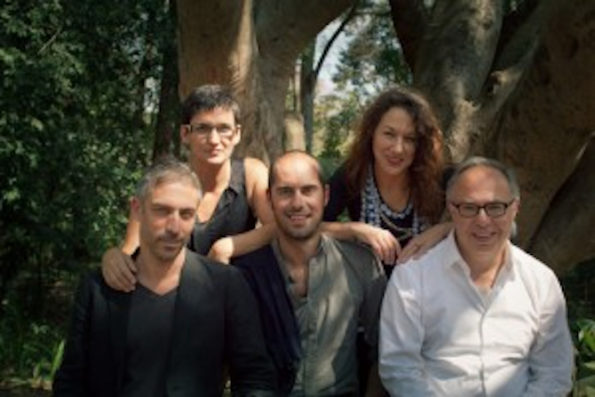Search
To search for an exact match, type the word or phrase you want in quotation marks.
A*DESK has been offering since 2002 contents about criticism and contemporary art. A*DESK has become consolidated thanks to all those who have believed in the project, all those who have followed us, debating, participating and collaborating. Many people have collaborated with A*DESK, and continue to do so. Their efforts, knowledge and belief in the project are what make it grow internationally. At A*DESK we have also generated work for over one hundred professionals in culture, from small collaborations with reviews and classes, to more prolonged and intense collaborations.
At A*DESK we believe in the need for free and universal access to culture and knowledge. We want to carry on being independent, remaining open to more ideas and opinions. If you believe in A*DESK, we need your backing to be able to continue. You can now participate in the project by supporting it. You can choose how much you want to contribute to the project.
You can decide how much you want to bring to the project.

There’s almost a year to go until its inauguration, and yet the 31st edition of the Biennal de São Paulo (2014) is already setting out to be a biennale of critical, social art, from the global South. Inaugurated in 1951, as one of the traditional, international biennales (the second oldest after Venice), the curatorial wager for the next edition intends to break away from its usual objectives, in existence since its creation, that consisted in introducing Brazilian art to the world and placing it in the international contemporary art scene.
In fact, this year the curatorial team is surprising. With Charles Esche (Scotland, 1962) at the head of the group of international curators, along with Galit Eilat (Israel, 1965), Pablo Lafuente (España, 1976), Nuria Enguita Mayo (España, 1967) and Oren Sagiv (Israel, 1969), their venture focuses on different social realities, crises and conflicts and where the intervention of artistic practices can play a role in visualizing them. The proposal for this edition is for the biennale to become a scenario for debate and discussion, a public arena, from where to think about the practices and policies of the world we live in.
The project deals with art’s place in globalization and the contemporary realities of different geopolitical zones revolving around economics, politics and culture. It will look into the regional situation of artistic practices as well as those of other decentralised regions of the world, and those beyond the mainstream. Charles Esche is indeed a specialist in Asian art and the Middle East. He curated the Biennale of Gwangju (South Korea) in 2002, the 9th Biennale of Istanbul (Turkey) in 2005, and the Biennale of Riwaq (Palestine) in 2007 and 2009. His focus of investigation is the reconsideration of the formats of museums, cultural centres, biennales and the role of art in society today.
Within this rethinking of museum institutions, the spectator acquires a specific relevance. Mediating between the work and the audience, Esche aspires to create devices and contexts suited to the different types of “users” of a biennale of this dimension (with around 600.000 visitors expected). With this in mind, the curators have moved to the south of Brazil –along with young, local curators and a large team of collaborators – to feel the vibrations of the territory and soak up the context, not just that of Brazil but also of Latin America, where social tensions are by no means scarce.
Without losing sight of other southern zones, and serving as an example for artistic and curatorial interventions in the conflicts of other latitudes, one of the projects that will be present in the biennale is Liminal Spaces. Its origins date back to 2004 when the group Artists without walls, which included Palestinian, Israeli and international artists, sought to raise a critical voice against the construction of the wall dividing the territories of Palestine and Israel. Its actions were guided by a desire to make the wall “transparent” while at the same time mediating, and inviting dialogue, between both communities, to dismantle this wall that is not just physical but also cultural and mental.
Ultimately the challenge for the curators is tremendous, given their focus on understanding some considerably disparate realities and the resolution of conflicts by way of curatorial practices and contemporary artistic practices in distinct global southern zones. However much they are forewarned, this challenge implies a risk for the curatorial team, which for the first time ever is foreign; of not succumbing in the face of an overwhelming reality to the existentialism of L’Étranger.

For Andrea art and critical thinking are a way of life, of feeling and being, where irony is always present. Without centres or peripheries, she lives in different continents, intermingling with the people and different ambiences and environments. In fact, her reflection was always tied to the crossovers that a new, generating, and creative event produce.
"A desk is a dangerous place from which to watch the world" (John Le Carré)